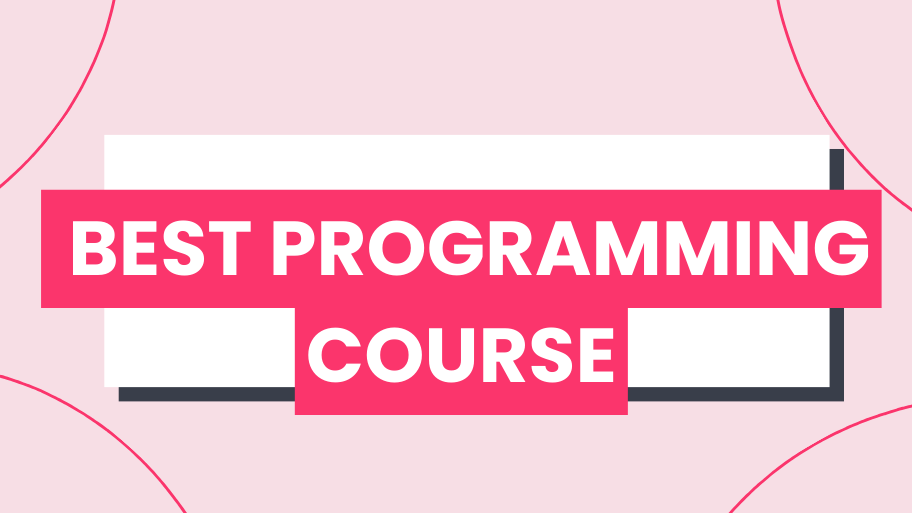If you enjoy video content, feel free to subscribe to my channel and activate notifications to not miss any new content!

Note: It's highly important for you to watch the video because the content is more comprehensive with videos. This post will be a summary of the video, but I guarantee it's definitely worth it.
Now, let's get into the content!

Yes, I know! This seems like a cliché! But I'm not selling anything to you and don't expect me to say anything negative about programming courses.
The decision to choose the right course can be overwhelming. But think about it...
The best programmers started somewhere... They might have learned in college, courses, videos, or simply by practicing, but the fact is, to get there, they had to acquire a theoretical foundation from somewhere.
In today's article, I'll help you discover the course you really need.
"Soul" tells the story of Joe Gardner, a jazz musician whose soul is separated from his body and transported to a place called "The Great Before." There, he embarks on a spiritual journey and befriends a soul named 22. Together, they explore profound questions about life, passion, purpose, and the true meaning of existence.

I absolutely LOVE this movie with all my heart because, when I first watched it, it made me reflect on various aspects of my personal and professional life. Here's my recommendation.

But, Lorena, what does this have to do with choosing a programming course?
First of all, we need to understand our passions, what truly attracts and identifies us. There's no perfect course, but there are courses made for every type of person, every personality, and career position. And there are thousands of course subcategories. Therefore, it's crucial for you to understand what you like.
For your reference, the average completion rate of courses is around 15%. Why? Firstly, because some courses are extensive, requiring many hours, weeks, or even months, and sometimes you pay a lot for a course and only watch 5 hours.
Another reason is that people want to learn things very quickly, especially beginners. They want to master the latest technologies, buying several courses to learn just a portion of the content. I did this a lot, but there's something I learned during this time, something that made all the difference. I'll tell you about it in the article.
Your biggest enemy... is yourself.
Learning programming is an exciting journey filled with challenges. It's a valuable skill that opens doors to incredible opportunities in the world of technology.
After all, we have thousands and thousands of courses on various technology-related topics: courses on being a PM, JavaScript, DevOps, among others. It's a gigantic world. However, as in any significant endeavor, the key to success is consistency.
Just like everything in life, right... Everything...

You can pay from 0 to 6 thousand dollars for a course, but if you're not consistent, you'll end up wasting your money and time.
Imagine a musician who only plays their instrument occasionally or an athlete who trains sporadically. They'd hardly achieve a high level of mastery in their areas. For example, I have two guitars here. If I play a very simple SONG occasionally just because I don't practice or study...
The same principle applies to programming. I code every day, so it's OBVIOUS that I'll be a better programmer than a musician.

Remember that consistency doesn't mean you have to study for hours or complete a course in the same week. It's more about maintaining a constant commitment to your learning, no matter how modest.
For example, I study English almost every day, besides investing in a teacher to communicate with. I try to read something in English every day, be it a book, video, or series. The amount of things I've learned is immense.
I study/read about entirely random things, like learning to do an edit instead of researching in PT, I search in EN. It's these things that help me maintain consistency. Today, I'm not fluent, but my English is better than it was 6 months ago; it's a continuous effort, like going to the gym, playing music, and so on.
Programming is a skill that accumulates over time, and every small step in the right direction will bring you closer to achieving your goals.
Know your current career stage and try to envision your future
As I mentioned earlier, there are thousands of courses available in the market today, and it's extremely important to understand your position in the market.
If I absolutely know nothing, maybe a beginner's course would be better.
If I'm a junior to mid-level, understanding best practices.
From mid-level to senior, better understanding architecture, data structure, caching, and so on...
Try to understand your future too. For instance, if I want to work outside Brazil, I need to understand the fundamentals very well and be fluent in English.
If I want to be just an entrepreneur, perhaps I don't need such in-depth knowledge of technology. Sometimes, a full-stack course would be more worthwhile for me, studying marketing and sales.
There's a video on the channel where I tell the story of two Brazilian billionaires, both developers, but they prefer to hire people better than them and focus on their business.
Another video on the channel tells the story of Piter Levels, who knows how to code, has created over 70 projects, but his focus is 100% on entrepreneurship.
There are courses that teach the basics of programming to create projects and start selling them. There are various aspects, various courses, from various areas.
Relationship
Here's something I learned after a long time.
A few years ago, I decided I wanted to learn about web development. I bought countless courses on Udemy, and if I completed one course, it was a lot. But during that period, I already consumed a lot of content from people in the tech area, whether on YouTube or Twitter.
I consumed a lot of content from Willian Justen. Currently, he's paused sharing things, but when he opened registrations for his course, I went there and bought it. Guess what? It was one of the courses in which I delved deeper and watched until the end. Why?
I already consumed a lot of his content, liked the video formats, many interesting articles, many ideas I agreed with as well. In some way, I created a 'relationship' with him. And that, for sure, was decisive at the time of purchase and in continuing the course.
So, yes, BUY courses, but buy courses from people whose content you already consume and that are aligned with your present and future.
Whether it's Dechamps' course, Erik's course, Rocketseat's course, or any other course. Currently, I don't buy courses on Udemy, for example, because I know I might start but won't finish them. But that's me, alright? Personally, I choose to support/buy from people whose content I already consume.
My current reality is different for someone who's starting, for example. For someone starting out, Udemy is a pretty good channel, but you need to research the teachers, see if they have free courses, and identify with them.
But remember, only buy if you're 100% motivated and committed to the course, because they don't perform miracles, they just show you the way, but it's up to you to pursue it.
Good luck on your journey!
Until next time!


